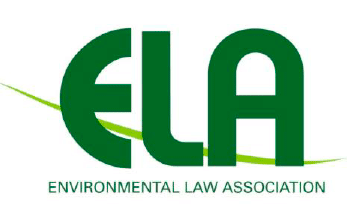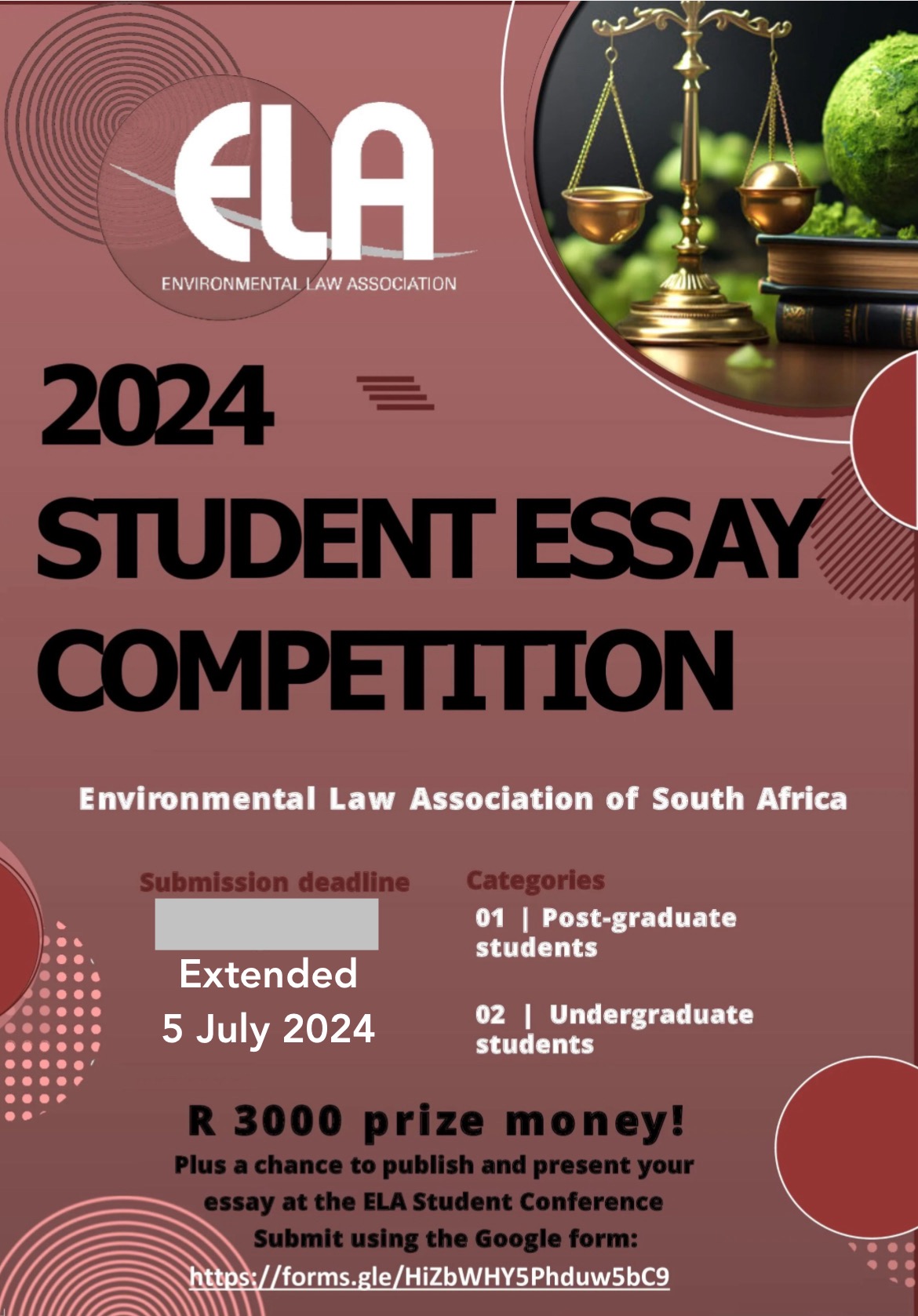Enter our essay competition!
We know how hard students work on their research.
It’s time to reap the rewards…
The Environmental Law Association of South Africa (ELA) Student Essay Competition supports and promotes new voices and knowledge in the field of Environmental Law. It has been running since 2018. Entries are open to any student currently enrolled at a South African higher education institution (including undergraduate and postgraduate programs) and any former students who completed their studies in 2023. Your essay should concern an environmental law/governance topic. You need not be a law student.
Entries close on 5 July 2024.
About the competition
- The ELA Student Essay Competition seeks student essay submissions that are based on high-quality, cutting-edge scholarship on African environmental law and governance issues, including, but not limited to, the areas of climate change, mining, natural resources extraction, land use planning, human rights and the environment, and the rights of nature.
- The essays may be based on environmental law and governance issues arising from assignments, dissertations, or theses that have been submitted/are to be submitted for assessment in a unit/topic/subject at a South African higher education institution.
- The expected length of the essays is between 6,000 and 10,000 words. Referencing, such as the footnotes and bibliography, are NOT included in this length. If your essay exceeds the expected length, please edit it!
Who may enter the competition?
- Any student who is enrolled in a South African higher education institution (undergraduate and postgraduate students).
- Former students who completed their studies in 2023.
How to enter?
Students must submit their entries via our Google form by close of business on 5 July 2024, following the competition rules below.

Competition rules
- A student is permitted one entry in the competition each year and a maximum of two entries in a period of five years.
- The essay must be original work, completed alone and unaided (except for ordinary input from the student’s supervisor). Co-authored papers will not be accepted.
- All entries must be submitted in Microsoft Word.
- Entrants are required to anonymize their submissions (in other words, your name, student number and other personal details should not appear on your essay, so that it can be assessed anonymously by our panel of judges).
- All entries must:
-
-
- submit a separate cover page upon which the following details are recorded: i. the student’s name; ii. an email address that the student can be contacted; iii. the higher education institution where the student is/was enrolled; iv. the name of the course of study that the student is enrolled in, indicating clearly whether this is a postgraduate or an undergraduate course of study.
- provide proof of enrollment (for 2023, if you have completed your studies, or 2024, if you are still a student).
- be submitted via https://forms.gle/HiZbWHY5Phduw5bC9.
- not contain any plagiarism or any artificial intelligence input.
-
- Students may use a recognised citation system required by your university school or faculty.
- The ELA Executive will appoint a panel of independent environmental law experts to review all entries and select the winning entry.
What can you win?
- The winner in each category will receive:
- R3000 in cash
- one non-transferrable complimentary registration for an ELA conference, at which he/she/they may present their essay as a conference paper
- one year of free membership of ELA commencing from 1 January in the year following the competition.
- The winning essay will also be considered for publication in a relevant academic journal.
- Only one essay in the undergraduate category and one essay in the undergraduate category may be announced as the winner, and an essay may be awarded a runner-up prize if the panel deems this appropriate.
For details about previous competition winners, see here.
Prize winners will be announced at our 2024 Student Conference – details TBC.
Questions?
Email us at with the subject ESSAY COMPETITION 2024.



